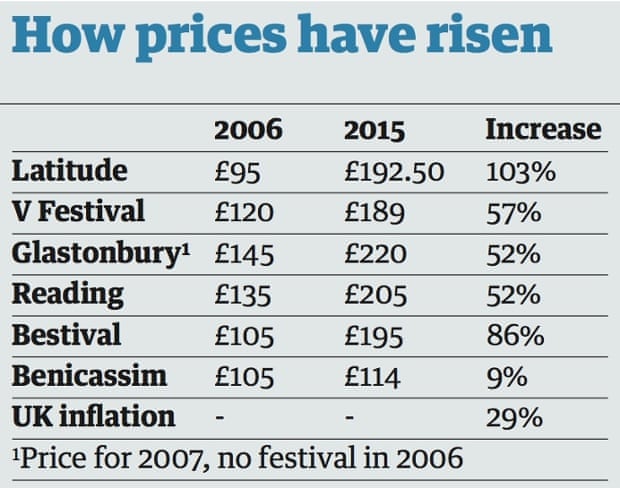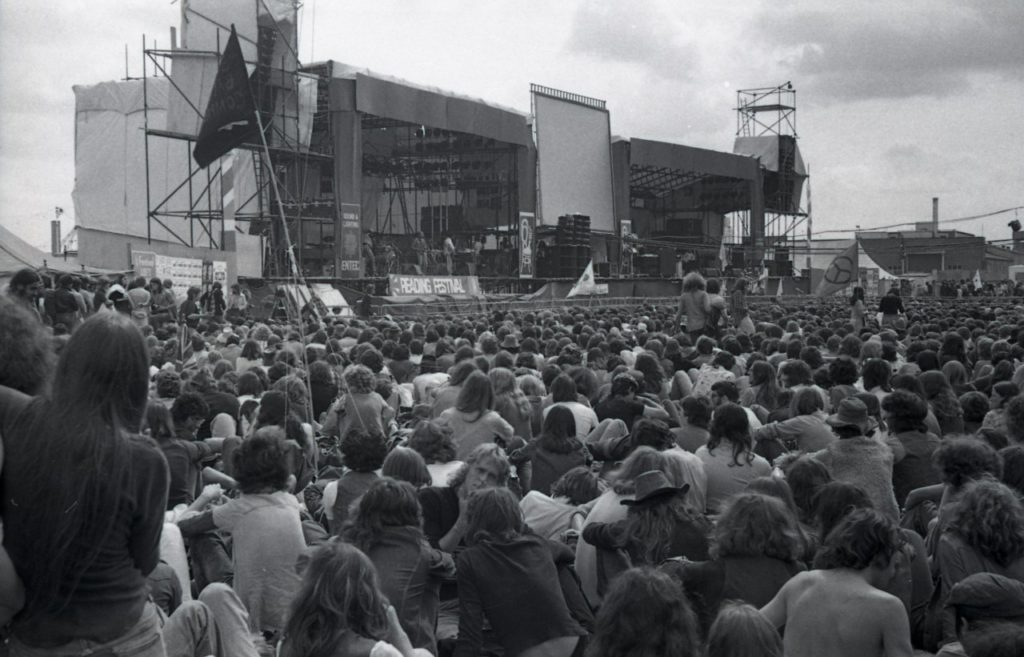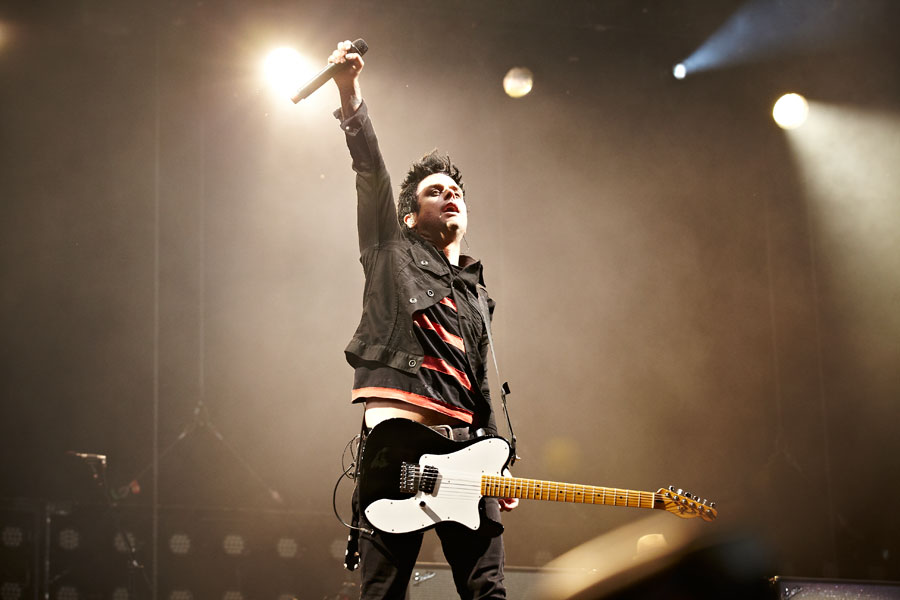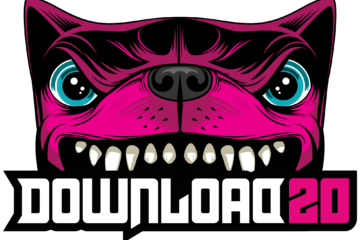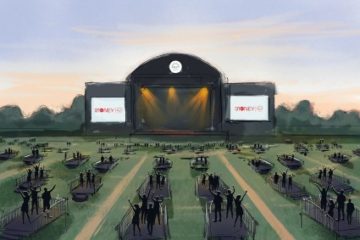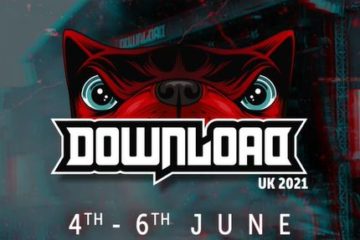The first announcement for Reading and Reading 2021 was made this week.
There were big changes made to the status quo, some interesting band choices and a some signals that the festival is changing….
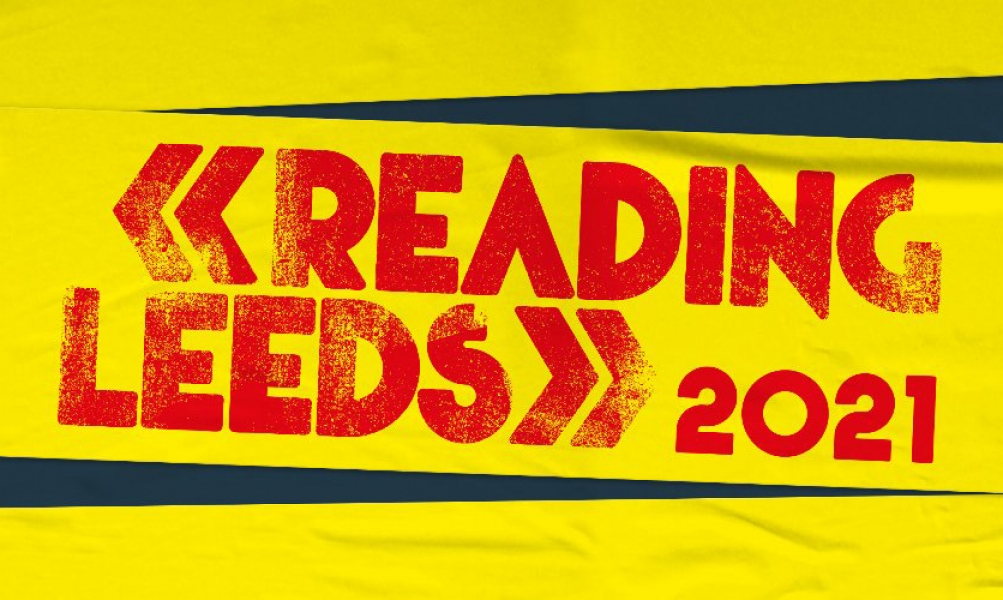
So, let’s dig into it and see what was said!
Changes
Before we get to the bands proper, we need to discuss the biggest change announced for 2021:
Leeds & Reading will have two main stages, and therefore six headliner bands.
The announcement also stated that there will be no clashes between the headlines, meaning one headliner will play while the other stage sets up for that headliner.
This is what Sonisphere festival used to be, and it worked very well there.
All the super fans were at the front, and so for everyone from the middle and backwards, you could see the headliner and then turn around and walk the short distance until you could hear the other stage and see the other band.
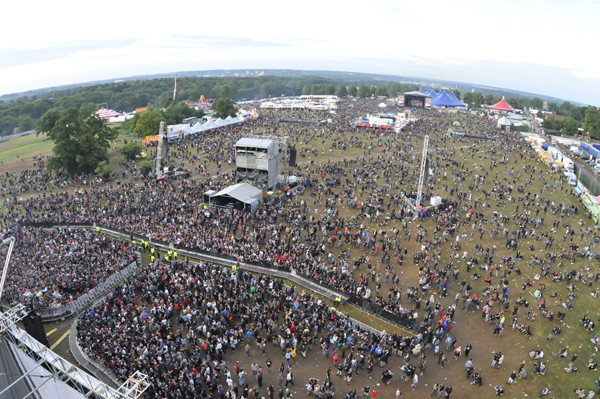
So next up, what bands were announced for Leeds and Reading?
The Announcement:
The Reading & Leeds line-up announcement really did shock some people, because it was mostly very modern stuff.
The six headliners are:
- Stormy
- Catfish & the Bottlemen
- Post Malone
- Disclosure
- Liam Gallagher
- Queens of the Stone Age
It wasn’t just a headline announcement though, some other bands were also announced:
- Lewis Capaldi
- Two Door Cinema Club
- AJ Tracey
- Dababy
- Doja Cat
- Mabel
- MK
- 100 Gets
- Ashnikko
- Beabadoobee
- Fever 333
- Lyra
- Madison Beer
- Sofi Turner
So that’s all the bands that were announced. Something you could have seen from just looking at the poster.
And here it is.
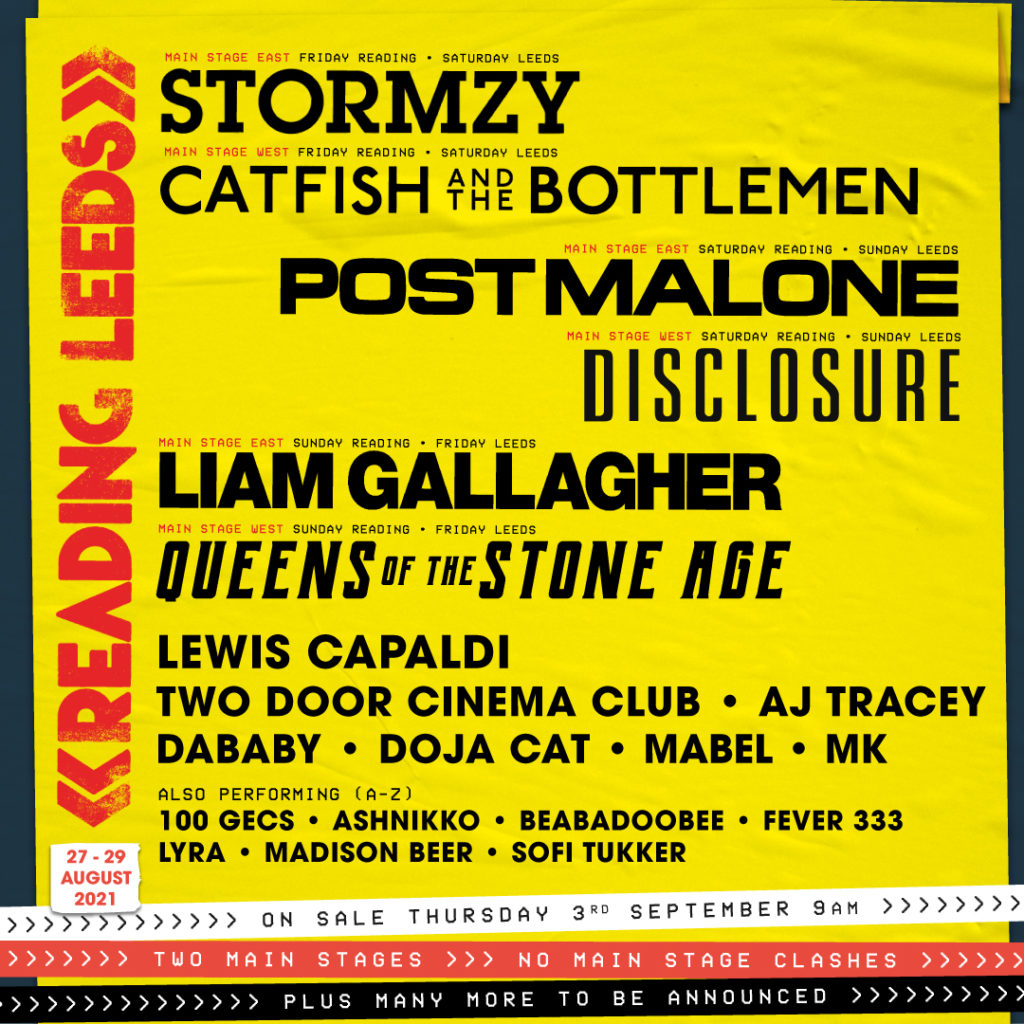
So now let’s talk more about the interesting headliner situation.
Twin Headliners
While the announcement was big on promoting the twin main stages, there has been a suggestion that this is just a better way of saying they opted for six sub-headliners instead of three main headliners.
Whether this was just because they couldn’t get three main headliners, or they really did intend to get 6 smaller bands, I don’t know.
It’s mostly just opinion anyway, as there is no real way to agree on what bands are headliner worthy and which are only sub-headliner worthy.
I also don’t really care.
I think the twin stages is an interesting idea and there are so few new ideas happening with music festivals, so I really support this one.
And anyway, these six headliners are certainly big, there is no denying.
Stormzy is huge right now after his political involvement and his set at Glastonbury 2019.
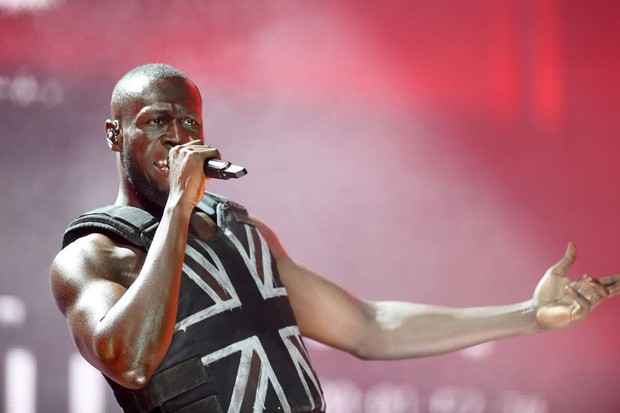
(Photo by Dave J Hogan/Getty Images)
Liam Gallagher actually headlined Leeds & Reading very recently, although I’ll admit I did have to Google Catfish and Disclosure.
I think that all of the acts are either headliner worthy now, or at least possible headliners in the future, they just needed this kind of exposure to help build their popularity.
I think I would expect a slightly lower ticket price for this lineup, and I suspect that won’t happen…
I am a big advocate of festivals promoting smaller bands so that they can build a following and become future main headliners, and this seems to be a great way of doing it.
However, there is something here that I’m far more interested in: the music genres of the bands announced.
Reading & Leeds History:
Reading started as a music festival way back 1971, an evolution of a Jazz Festival spanning back to the 50’s. Leeds joined the fun in 1999.
Over the years, the festival has been one of the most popular festivals to attend, largely because of its mix of artists.
The festival has always had a mix of popular music alongside more niche genres, meaning the festival appealed to the widest possible group of festival attendees.
In fact, Wikipedia states that the festival genres are: Alternative, Rock, Metal, Hip Hop and Dance, suggesting the festival actually favours rock and metal music over hip hop.

Ignoring the twin main stages and multiple sub-headliners, I am more interested in the fact that this year seems to be firmly in the popular music genre.
Of the headliners, Queens of the Stone Age are the closest thing to a niche/metal band on this announcement, and even then, they are more of a hard rock band.
The announcement seems much more focused on rap and electronic music.
Now, there is absolutely nothing wrong with this, I’m just pointing out that it isn’t a very even mix of popular and niche music.
Why the change?
I think the reason for this is firstly that the festival has been leaning this way for a while, it just hasn’t been quite this blatant about it.
It wasn’t always like this though!
Let’s consider the way-gone era of 2013. The 6 headliner and sub-headliner bands that year were:
- Green Day
- Eminem
- Biffy Clyro
- System of a Down
- Chase & Status
- Nine Inch Nails
Significantly more rock and metal bands, yeah?
Also: I was at this Reading Festival in 2013 and Oh My God, it was SO GOOD!
But since then, the festival has moved to phasing these types of bands out in favour of lighter rock, rap and electro groups.
I assume this is because the audience wanting this type of music has grown, so they don’t need to expand the potential audience as much and can swap more niche music for more popular stuff.
Even back in 2018, the Guardian was asking is rock was dead, because the line-up mix of genes had definitely moved
(although that year did have a bunch of great rock bands, so it really is all subjective.)
After a few years of phasing out the metal music elements, it makes sense that the festival move almost entirely towards the popular genres of rap and electronic music.
The 2020 Element
2020 has been totally absent of music festivals, and people having been stuck indoors for a significant portion of the year.
I think that when summer 2021 rolls around, EVERYONE is going to want to do absolutely everything they can, and festioval attendance is going to skyrocket!
So with this expanded potential audience, why split your music genres when you can attract the same number of attendees with fewer genres, and make the crowd happier because they have more of the music they like?
I think it’s a good way of forward-thinking, and though I wont be attending, I’m sure anyone who does go to Reading and Leeds 2021 will have a fantastic time.
Wrap Up
The Leeds & Reading first line-up announcement is here.
There are some significant changes to the stages, the genres of music of the acts booked, and even the popularity of the main stage bands.
This signals a significant change for the festival, and it’s one that I support.
While I may not be a huge fan of most of the bands announced, I like that the festival is trying something different and maybe it will inspire other festivals to finally start making some changes too.
